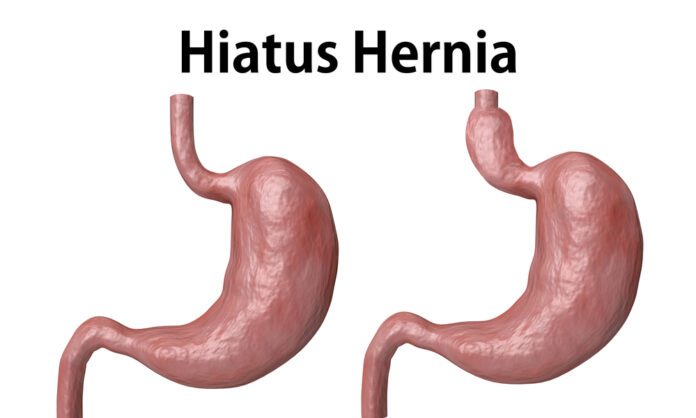Overview Of Hiatal Hernia
Hiatal hernia is a condition in which part of the stomach extends through an opening of the diaphragm into the chest. The diaphragm is the sheet of muscle that divides the chest from the abdomen.
Causes Of Hiatal Hernia
The exact cause of this condition is not known. It may be due to weakness of the supporting tissue. Your risk for the problem goes up with age, obesity, and smoking. These hernias are very common. The problem occurs often in people over 50 years.
This condition may be linked to reflux (backflow) of gastric acid from the stomach into the esophagus.
Children with this condition are most often born with it (congenital). It often occurs with gastroesophageal reflux in infants.
Symptoms
Symptoms may include:
- Chest pain
- Heartburn, worse when bending over or lying down
- Swallowing difficulty
- The hiatal hernia by itself rarely causes symptoms. Pain and discomfort are due to the upward flow of stomach acid, air, or bile.
Exams & Tests
Tests that may be used include:
- Barium swallow x-ray
- Esophagogastroduodenoscopy (EGD)
Treatment Of Hiatal Hernia
The goals of treatment are to relieve symptoms and prevent complications. Treatments may include:
- Medicines to control stomach acid
- Surgery to repair the hernia and prevent reflux
Other measures to reduce symptoms of a hiatal hernia include:
- Avoiding large or heavy meals
- Not lying down or bending over right after a meal
- Reducing weight and not smoking
- Raising the head of the bed 4 to 6 inches (10 to 15 centimeters)
If medicines and lifestyle measures do not help control symptoms, you may need surgery.



